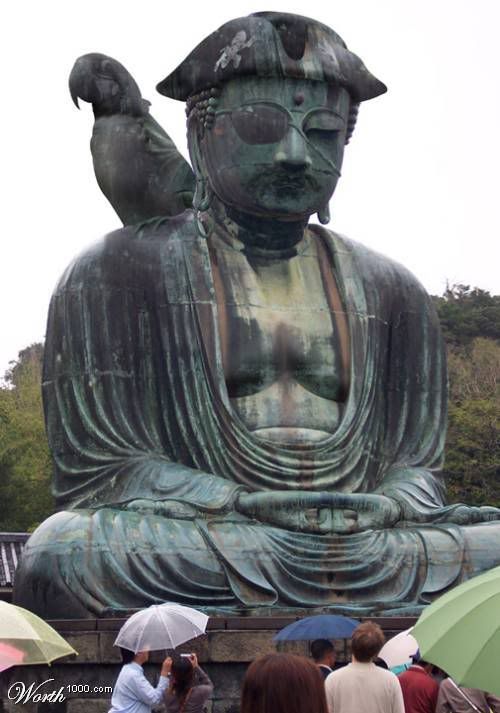Dear all,
sorry if this has been discussed - the search functions says "ino" is too short to be a search term...
Having seen Kyonin and Dosho interact, and Jundo and Shingen (today, for me), I am curious about the work of the Ino.
How does he know what to do when, and what is the meaning for what the priest is doing?
Maybe ceremony is just ceremony, and the inkin is a nice instrument, but as Zen has so many symbols, I thought it might well be interesting to ask?
Why does the bell sometimes go faster?
Why is it sometimes muted? (or is it hit elsewhere, this wooden "clonk" sound?)
Another practical question: I am reciting (since shortly before Ango, but one of my commitments to stick with it) the Heart Sutra every morning.
Are there rules where to breathe?
Breathing always gets me out of the beat (well, beat without beat...), especially with the long-worded German version.
I've read somewhere the Heart Sutra should be chanted on one breath - is this possible in Japanese?
So should one use as few breaths as possible or take short breaths at one's ease?
Thank you very much.
Gassho,
Danny
sorry if this has been discussed - the search functions says "ino" is too short to be a search term...
Having seen Kyonin and Dosho interact, and Jundo and Shingen (today, for me), I am curious about the work of the Ino.
How does he know what to do when, and what is the meaning for what the priest is doing?
Maybe ceremony is just ceremony, and the inkin is a nice instrument, but as Zen has so many symbols, I thought it might well be interesting to ask?
Why does the bell sometimes go faster?
Why is it sometimes muted? (or is it hit elsewhere, this wooden "clonk" sound?)
Another practical question: I am reciting (since shortly before Ango, but one of my commitments to stick with it) the Heart Sutra every morning.
Are there rules where to breathe?
Breathing always gets me out of the beat (well, beat without beat...), especially with the long-worded German version.
I've read somewhere the Heart Sutra should be chanted on one breath - is this possible in Japanese?
So should one use as few breaths as possible or take short breaths at one's ease?
Thank you very much.
Gassho,
Danny







 .
.





Comment